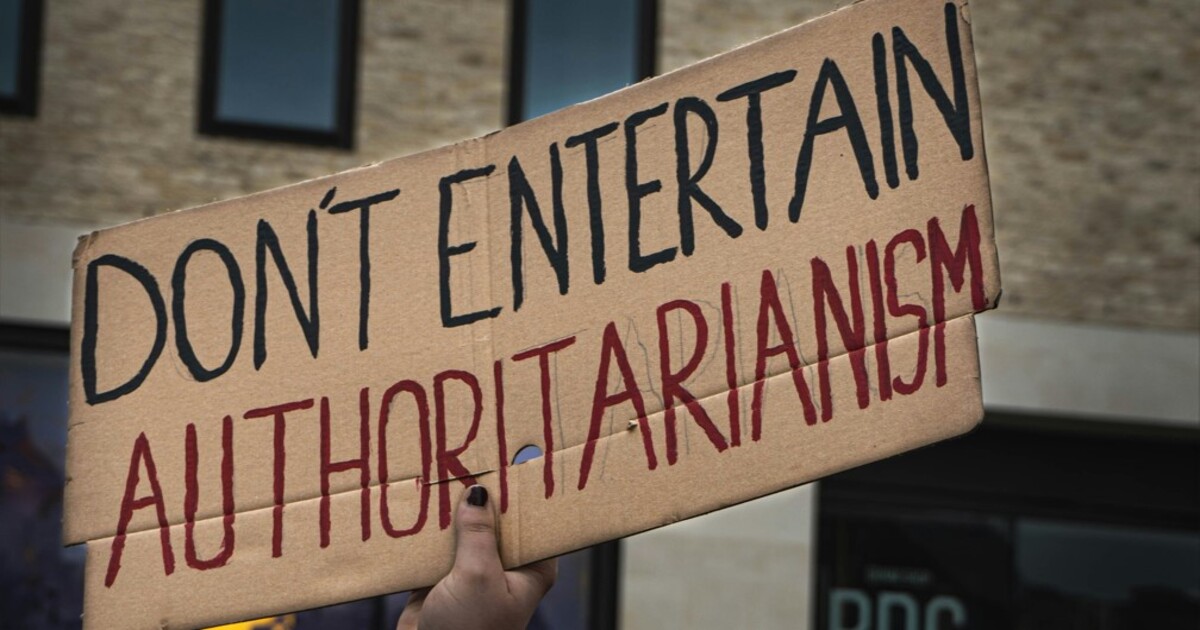Why Do States Criminalize Consumer Boycotts?
In Turkey, a consumer boycott now led by the opposition is being treated as a threat to national security. This problem is by no means limited to Turkey.
April 6, 2025

A Strategic Intervention Paper (SIP) from the Global Ideas Center
You may quote from this text, provided you mention the name of the author and reference it as a new Strategic Intervention Paper (SIP) published by the Global Ideas Center in Berlin on The Globalist.
One of the basic insights of social movement theory is that meaningful political and social transformation often comes from actors excluded from formal institutional channels.
Rather than working through official avenues, these actors deploy extra-institutional tactics — disruptive, subversive and confrontational — to challenge authority and amplify grievances from the margins. They protest, they march and they occupy space. And they boycott.
How boycotts work
Boycotts are disruptive by design. They strike in two places: The balance sheet and the brand image of affected corporations. In markets where identity is monetized, and where logos are laden with meaning, a dent in reputation becomes a dent in pockets.
In consumer boycotts, two effects feed each other: Market disruption draws attention, then attention intensifies market disruption.
Actress Aybüke Pusat was dropped from the TV series Teşkilat (The Organization), aired on the state broadcaster TRT, for supporting the boycott.
Turkey’s ongoing boycott campaign made this dynamic painfully clear. After Istanbul’s mayor, Ekrem İmamoğlu, was arrested, the main opposition party CHP called for a consumer boycott of pro-government media and businesses.
CHP leader Özgür Özel cast it as a campaign of nonviolent resistance. The state called it sabotage. Prosecutors launched investigations, detaining 10 people.
Actress Aybüke Pusat and her boyfriend lost their jobs at TRT for voicing support. Then the TV series of a screenwriter who supported the actress was also canceled.
Pro-government media to the rescue
Then the CHP’s website listing the brands to be boycotted was taken down. The deputy president, the minister of trade, the minister of justice and the AKP spokesperson all ran to pro-government media, weaving a story that boycotts were part of a plot. Mashallah, look at the Turkish state being extremely efficient!
Today, a series of investigations are ongoing against those who called for boycotts. Since boycotts are protected under the Turkish constitution — and even Erdoğan, just a few months ago, encouraged people to boycott brands that drastically raised prices — the accusation used to justify this morning’s detention of 16 people was: “Inciting hatred and animosity among society.”
Not an isolated incident
This is not an isolated reaction, it is part of the repertoire of authoritarian regimes to push back against contentious politics. Remember: In Myanmar, boycotting military-owned businesses after the 2021 coup was treated as insurgency.
In India, boycott calls tied to protests against the “Citizenship Amendment Act” were met with sedition charges and digital repression. Iran has detained activists and shut down platforms used to organize consumer boycotts during inflation-driven unrest.
What about liberal democracies?
And then there are the liberal democracies. In the United States, on February 28, 2025, a nationwide “economic blackout” took place — a 24-hour spending strike against big corporations rolling back Diversity, Equity and Inclusion (DEI) initiatives under Trump and Elon Musk’s so-called “Department of Government Efficiency” (DOGE).
Organized by the People’s Union USA, it targeted Amazon, Target, Meta and X. It flooded social media. Whether it moved markets is beside the point. It reminded people of their agency — and that is a very important thing to keep in mind: There is power in people.
States evidently consider consumer boycotts dangerous because they turn consumption into a political act. They test the state’s tolerance and often find its limits.
But more importantly, when a consumer boycott takes off, it stops being about shopping. It becomes a referendum. On power. On legitimacy. On who gets to decide what matters.
The role of the “futureless youth”
Political consumerism is the shape that civic resistance increasingly takes nowadays. It is mainly driven by the “futureless youth” of our time.
This futureless youth is educated, skeptical of traditional institutions, often female and unwilling to wait their turn in broken systems. Protesting with their (non-)purchases, young people organize without parties, vote without ballots. Not because they think it’s the most effective strategy — but because it’s one they can own.
And the state — authoritarian or democratic — knows this. That is why it steps in when you stop buying.
Takeaways
States evidently consider consumer boycotts dangerous because they turn consumption into a political act. They test the state’s tolerance and often find its limits.
In Turkey, a consumer boycott now led by the opposition is being treated as a threat to national security. This problem is by no means limited to Turkey.
One of the basic insights of social movement theory is that meaningful political and social transformation often comes from actors excluded from formal institutional channels.
In consumer boycotts, two effects feed each other: Market disruption draws attention, then attention intensifies market disruption.
When a consumer boycott takes off, it stops being about shopping. It becomes a referendum — on power, on legitimacy and on who gets to decide what matters.
Political consumerism is the shape that civic resistance increasingly takes nowadays. It’s mainly driven by the “futureless youth” of our time.
A Strategic Intervention Paper (SIP) from the Global Ideas Center
You may quote from this text, provided you mention the name of the author and reference it as a new Strategic Intervention Paper (SIP) published by the Global Ideas Center in Berlin on The Globalist.


